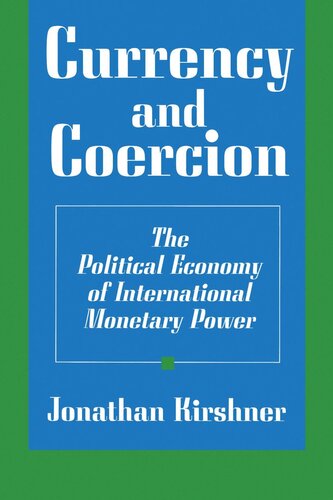

Most ebook files are in PDF format, so you can easily read them using various software such as Foxit Reader or directly on the Google Chrome browser.
Some ebook files are released by publishers in other formats such as .awz, .mobi, .epub, .fb2, etc. You may need to install specific software to read these formats on mobile/PC, such as Calibre.
Please read the tutorial at this link: https://ebookbell.com/faq
We offer FREE conversion to the popular formats you request; however, this may take some time. Therefore, right after payment, please email us, and we will try to provide the service as quickly as possible.
For some exceptional file formats or broken links (if any), please refrain from opening any disputes. Instead, email us first, and we will try to assist within a maximum of 6 hours.
EbookBell Team

4.7
56 reviewsJonathan Kirshner here examines how states can and have used international currency relationships and arrangements as instruments of coercive power for the advancement of state security. Kirshner lays the groundwork for the study of what he calls monetary power by providing a taxonomy of the forms that such power can take and of the conditions under which it can have effect. He then establishes the actual existence of monetary power by showing how the taxonomy is supported by the historical record, including cases from nations from all over the globe and throughout the twentieth century. He uncovers how monetary power is affected by different monetary regimes, the sources of its success and failure, and the factors that lead states to turn to its use.
Kirshner thus succeeds in developing a generalized framework for the analysis of an important yet neglected form of state power that is likely to be of increasing importance in the post-Cold War era. Although some distinguished scholars have touched on the issue of monetary power, there has been until now no standard text on the subject. Integrating security studies and international political economy, this book is a timely synthesis that will be important to the entire discipline of international relations.